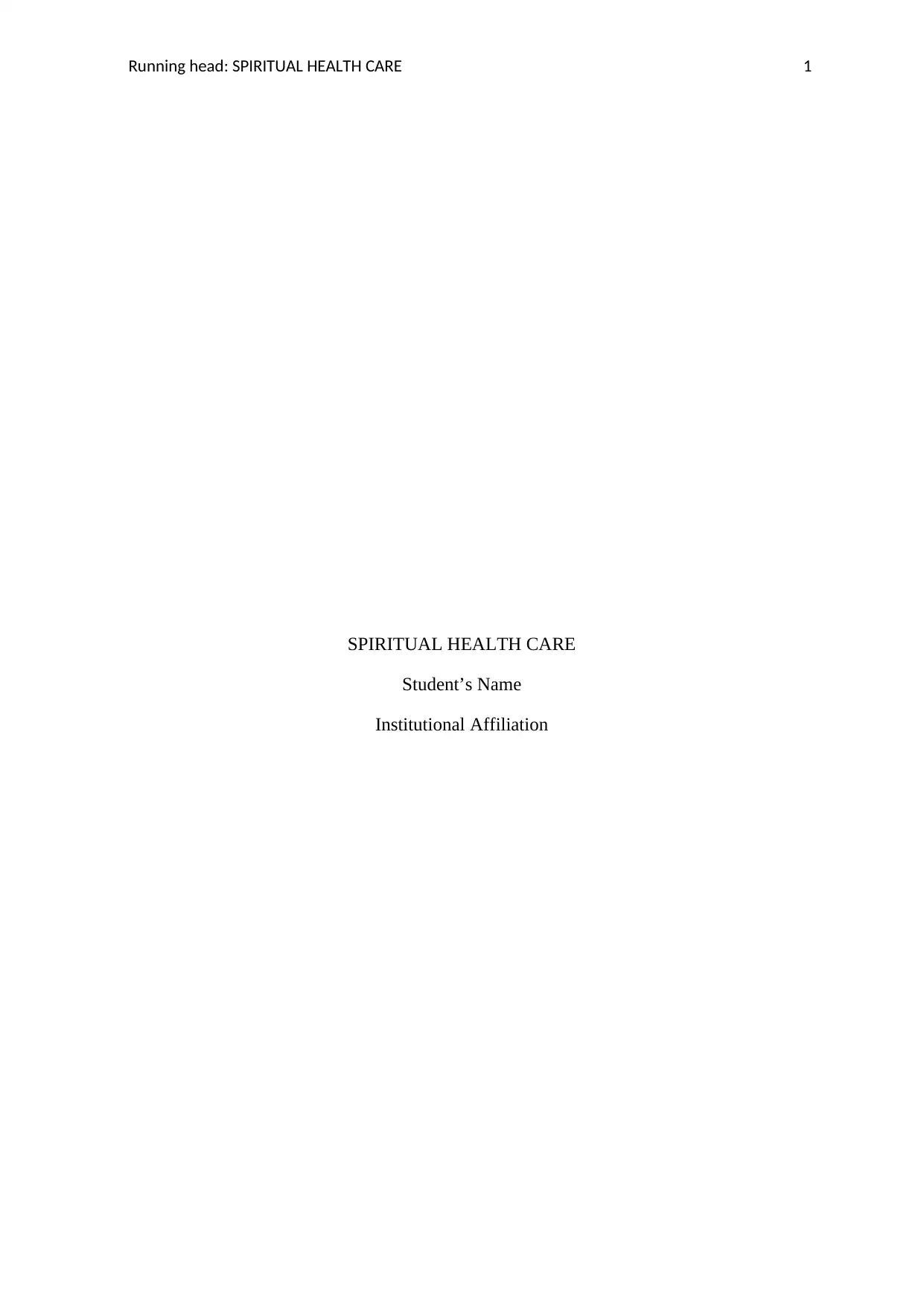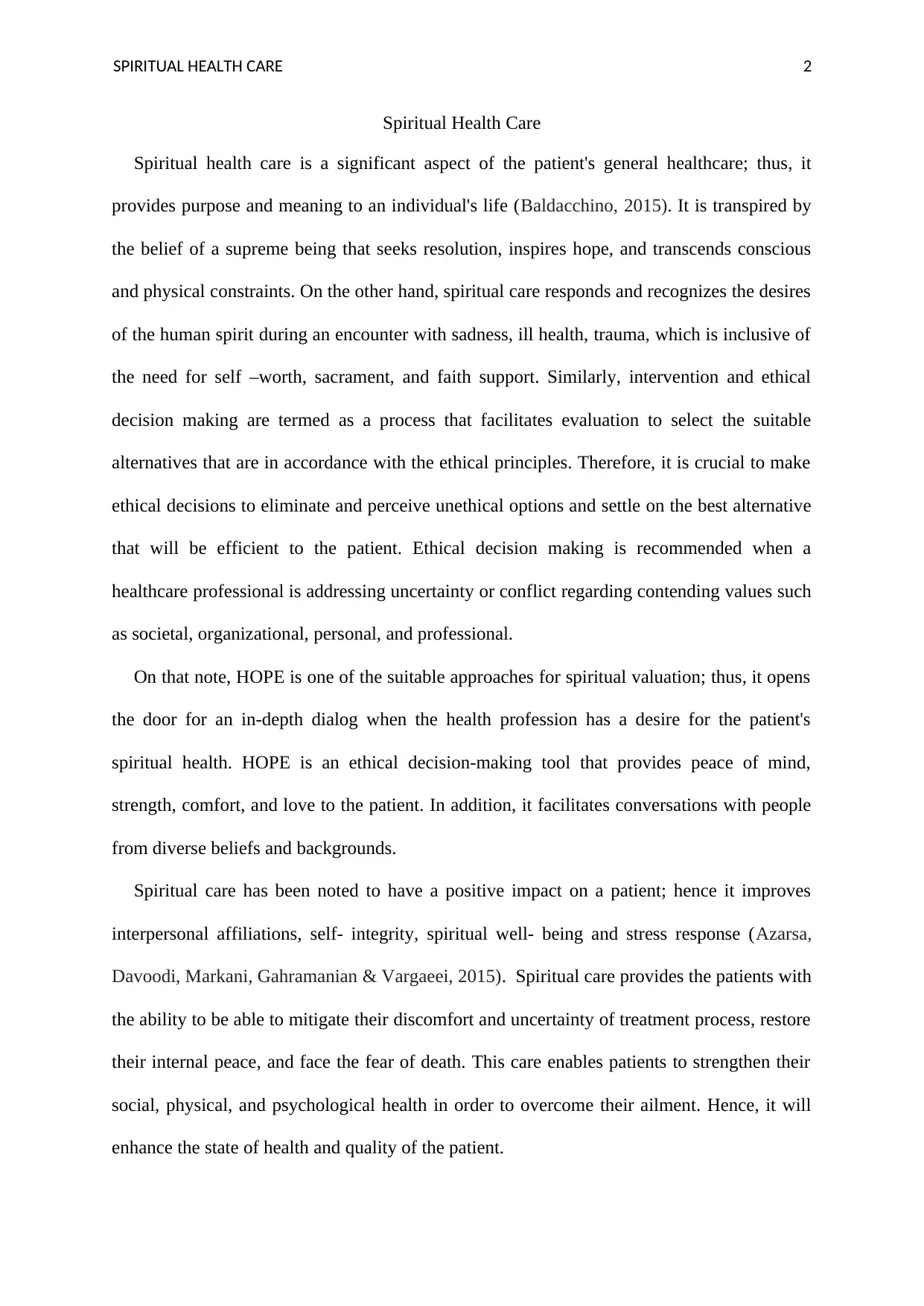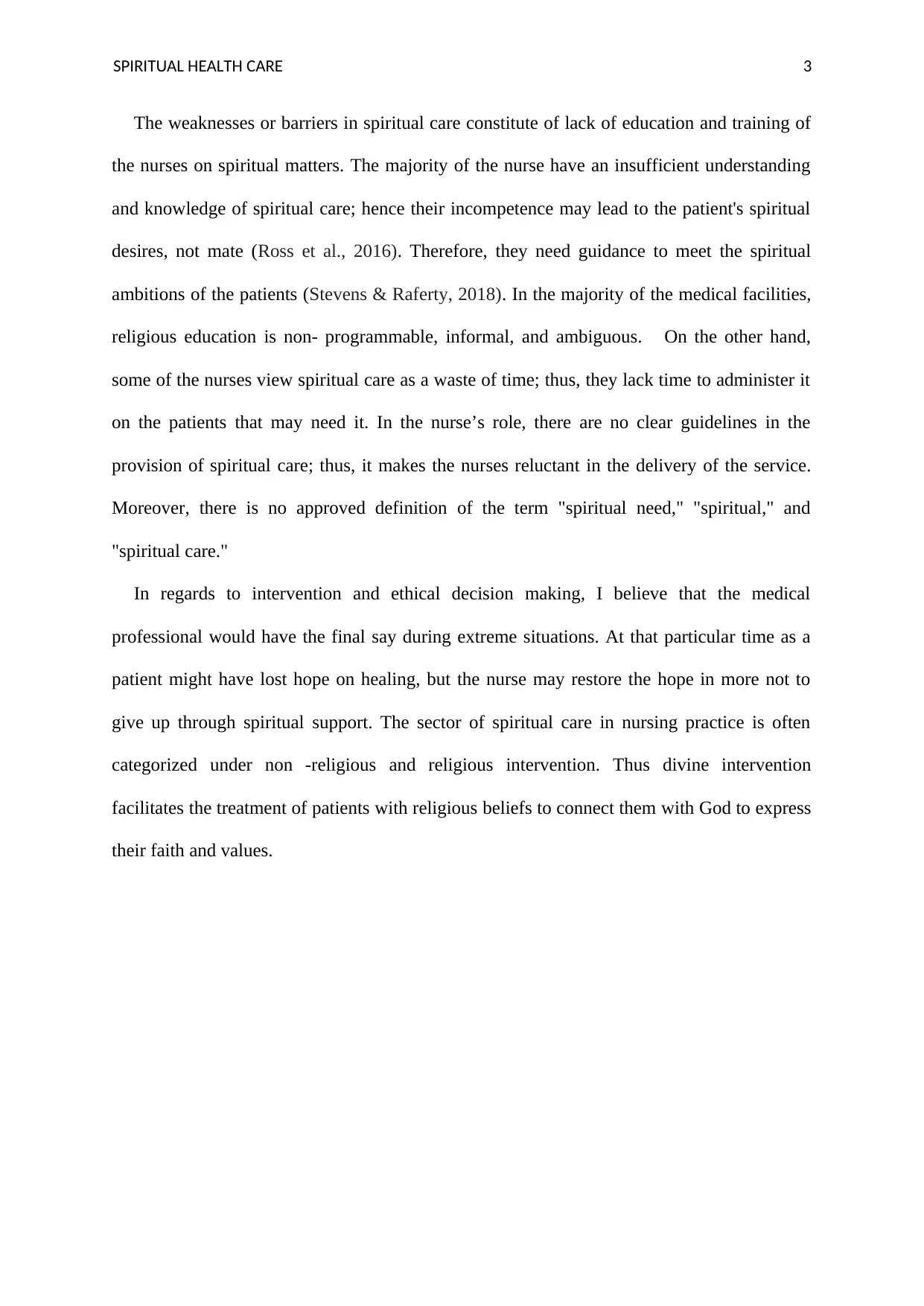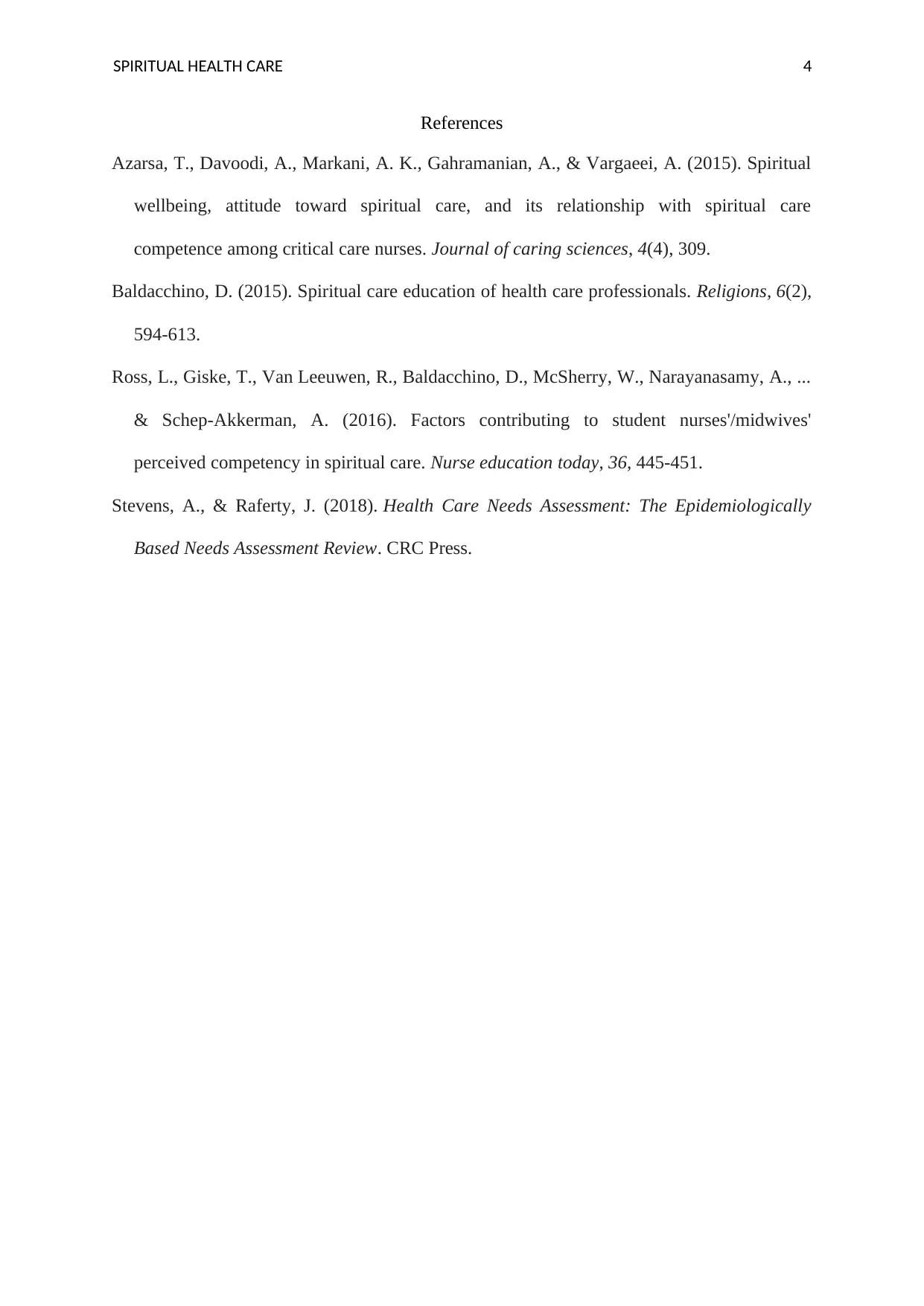Spiritual Health Care: Ethical Decision-Making in Nursing Report
VerifiedAdded on 2022/08/19
|4
|847
|13
Report
AI Summary
This report delves into the significance of spiritual health care as a crucial aspect of overall patient well-being, emphasizing its role in providing purpose and meaning in life. It highlights the importance of ethical decision-making in addressing patient needs, particularly during times of illness or trauma, and introduces the HOPE approach as a valuable tool for spiritual assessment. The report discusses the positive impacts of spiritual care, such as improved interpersonal relationships and stress responses, while also acknowledging the weaknesses and barriers, including a lack of education and clear guidelines for nurses. It explores the role of religious and non-religious interventions, and emphasizes that medical professionals have the final say in extreme situations. The report also provides insights into cultural sensitivity in spiritual assessment, and the importance of understanding the personal meanings associated with spirituality and religion. It concludes with a call to action, encouraging healthcare professionals to incorporate spirituality into medical practice.
1 out of 4











![[object Object]](/_next/static/media/star-bottom.7253800d.svg)